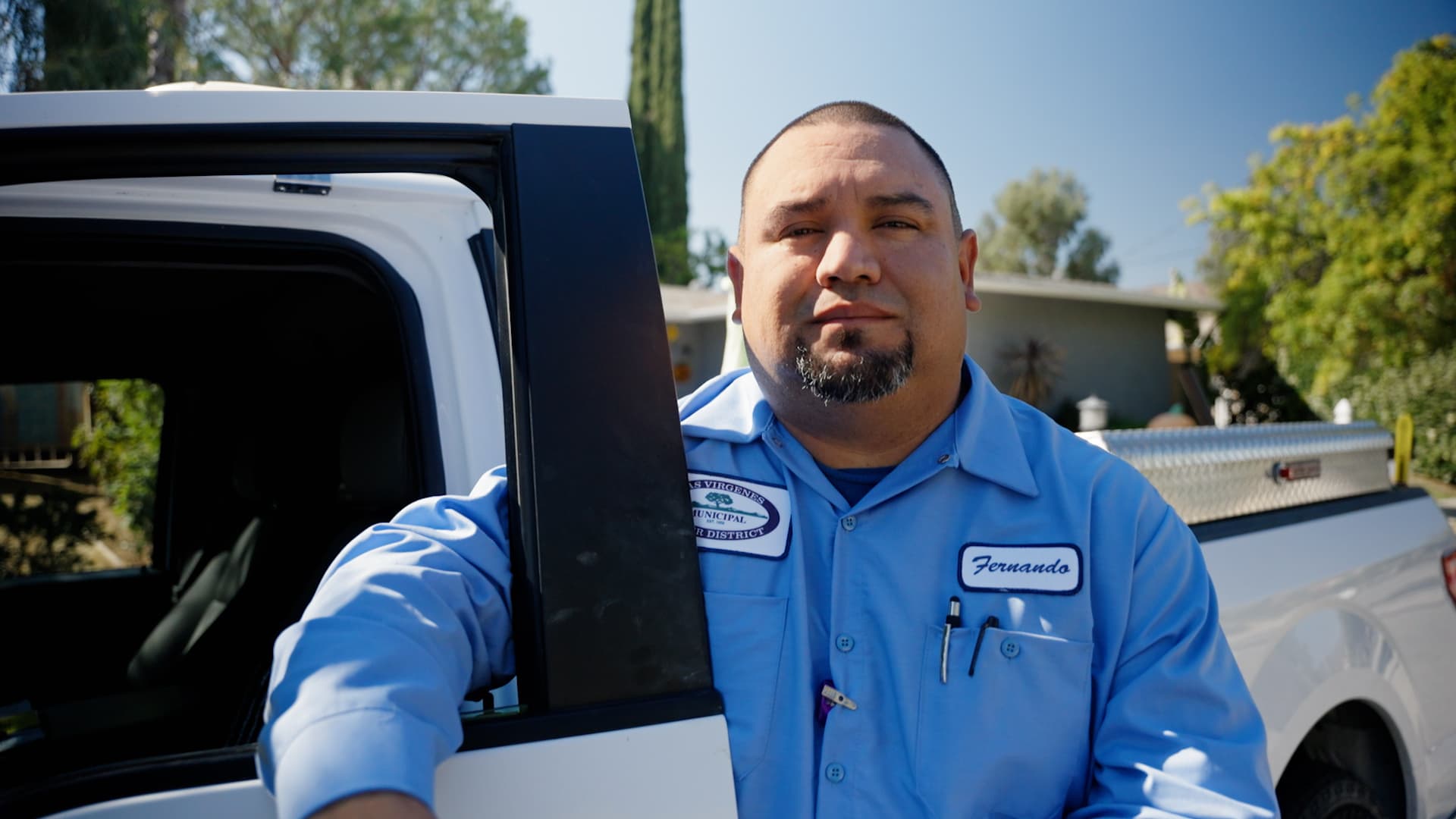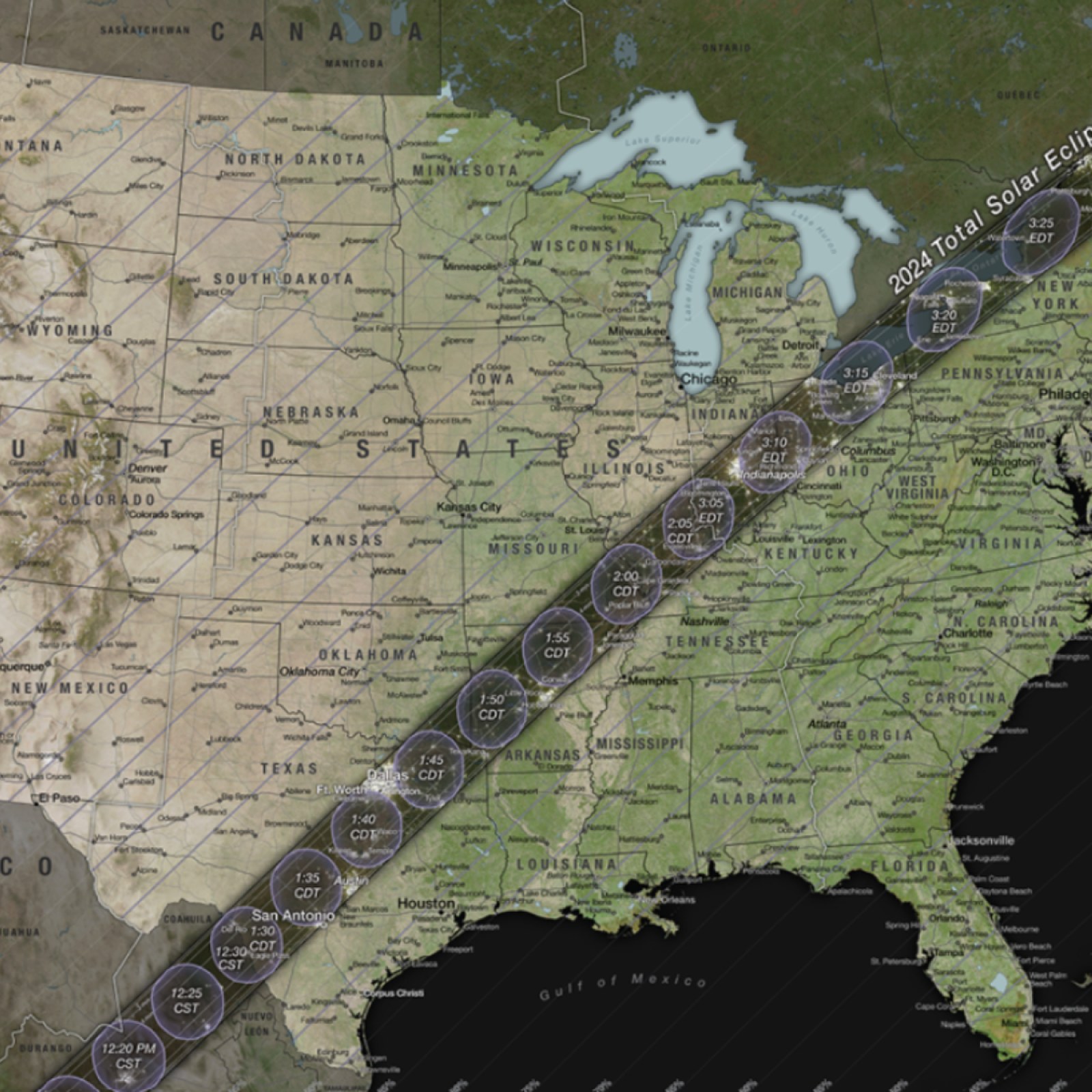What it takes to make $70,000 as a water utility in California

With the promise of job security and work-life balance, Fernando Gonzalez became a water operator. After several years as one, he sees his job as more than just fines for overuse.
One day, he patrols an area ranging from farmland to a Malibu mansion, looking for evidence of residents wasting water. He hands out notices when residents turn on their sprinklers just after a sprinkler leak or a storm, but the most rewarding part of his job is interacting with customers to find out how they can save water and why. It’s about explaining why it’s so important.
“We are more an instrument of education than a force,” Gonzalez, 43, told CNBC Make It. “We want to spend more time with our customers and give them advice on how they can actually save money.
With Southern California and the rest of the southwestern United States suffering more than two decades of severe drought, the risks are higher than ever.This is the driest time in the region Over 1,200 yearsaccording to Nature Climate Change.
“Climate change has made a huge difference in how our water cycle is being affected,” says Gonzalez. “We can see that the lakes are running low on water and the wildlife is being affected. I know you’re coming.”
Fernando Gonzalez, 43, makes $70,000 a year as a water utility based in Calabasas, California.
Tristan Pelletier | CNBC Make It
Gonzalez said that speaking to residents and news teams about climate change wasn’t something he signed up for, but it does influence the work he’s doing and behavioral changes that help protect California’s precious water resources. I believe there is a direct relationship between They would have used my voice as a tool,” he says. But this is the reality of what we must do to save water. ”
Here’s how Gonzalez makes $70,000 a year (nearly $100,000 after overtime) as a water utility in Calabasas, California.
find work
Born and raised in California, Gonzalez helped his father in his pool cleaning business until the age of 25. During that time he learned a lot about water chemistry and loved working outdoors. He made a career change in his twenties as an industrial sales and distribution plant manager, but he didn’t like a desk job and wanted another job.
When Mr. Gonzalez noticed that his water clients were always in a good mood, were able to spend more time with their families, and were more active in their hobbies, he wanted to join.
In 2017, Gonzalez enrolled in a community college, taking six courses, Certified The California Water Resources Board allows you to work as a water utility.
Fernando Gonzalez is on the front lines of the fight against the historic “Super Drought” in the southwestern United States, working with some customers in Los Angeles County to save water in the desert.
Tristan Pelletier | CNBC Make It
The biggest surprise during his research was learning about the legal regulation of how water moves entire state of california in los angeles county“It’s become clear that we’re running out of water here in Southern California,” he says. “It turns out that the water is coming from Northern California. In fact, we don’t store water here in the South, so water conservation efforts became a reality.”
Learning about the chemistry of water treatment, including how acids, chlorine, and various chemicals affect water was difficult, but Gonzalez has learned to love it. “If you’re passionate about something, you can always find a way,” he says. “And then I realized I was passionate about this. It really struck a chord with me.”
Water utilities must hold either a water distribution license or a treatment license. Gonzales now holds both. He was hired in January 2020 by the Las Heville Genes Municipal Water District, which serves approximately 75,000 residents in western Los Angeles County.
work day
Gonzales wakes up at 3:00 am, leaves the house by 4:00 am, and is at work by 5:00 am. His shift usually doesn’t start until 7am, so he works overtime in the morning with drought patrols and workers. The “Pure Water Project” is an initiative to purify reclaimed water and use it continuously.
Gonzalez enjoys the versatility of his work. Depending on your assignment for the day, you might be drilling meter readings to install new plumbing or interacting with customers.
His district is one of the top water users in California. Last year, he averaged 205 gallons a day per customer, according to the company. Report from the Los Angeles Timesand about 70% of residential water is for landscaping.
Fernando Gonzalez says job security, work-life balance, and the ability to work outdoors are what drove him to become a water operator. He also enjoys interacting with customers and teaches them how to save water.
Tristan Pelletier | CNBC Make It
The typical areas he works in range from traditional single-family plots to horse farms. celebrity mansion Owned by Kim and Kourtney Kardashian, Dwyane Wade, Kevin Hart and others, many of whom have been notified for excessive water use.
Fines range from $50 to $100 and are often “not a good enough deterrent for those who have the means and money to pay for it,” he says.
Violations can also spark unpleasant conversations with homeowners who worry that if they don’t water their lawns, their plants will die and their property values will go down.
But Gonzalez reminds them that if California’s drought worsens, water use could be restricted to human consumption only. “Unfortunately, there will be victims of drought, and it is preferable that the victims be grass rather than people,” he says.
Districts install flow restrictors when customers repeatedly exceed their water budgets. This is a washing machine with her 1/16 inch hole in the center that can pump just under 2 gallons of water home every minute.
Properties that repeatedly exceed their water allotment have flow restrictors installed. This is a washer with a 1/16″ hole in the center that allows water flow at just under 2 gallons per minute.
Tristan Pelletier | CNBC Make It
Restrictors let customers reprioritize their water use. So,” says Gonzalez.
Gonzalez approaches his work with empathy. It’s not that people are wasting water maliciously. Typically, customers just pay their water bill and don’t give it a second thought. Only when people like him visit their properties, find leaks, and work with them to fix them, do they realize they are wasting water.
“This is a win for everyone,” says Gonzalez. “From a savings standpoint, customers benefit from less water wasted and lower water bills.”
Overall, “one of the biggest rewards for me is still the customer service aspect, helping the community with what I do,” he says.
the future of water
Gonzalez is also working on the Pure Water Project, an initiative that uses new technology to treat recycled water for irrigation. The ultimate goal is to one day bring the treated water up to safe drinking standards.
In the morning, Gonzalez monitors the facility’s three-stage filtration process in the lab, tweaking the system and measuring the impact of how pure the water is.
“Climate change has made a big difference in how our water cycle is affected,” says Fernando Gonzalez. “We see animals coming down from the mountains to the cities to eat, because food sources are affected where they normally live.”
Tristan Pelletier | CNBC Make It
https://www.cnbc.com/2022/11/27/on-the-job-what-it-takes-to-earn-70k-as-a-water-operator-in-california.html What it takes to make $70,000 as a water utility in California



